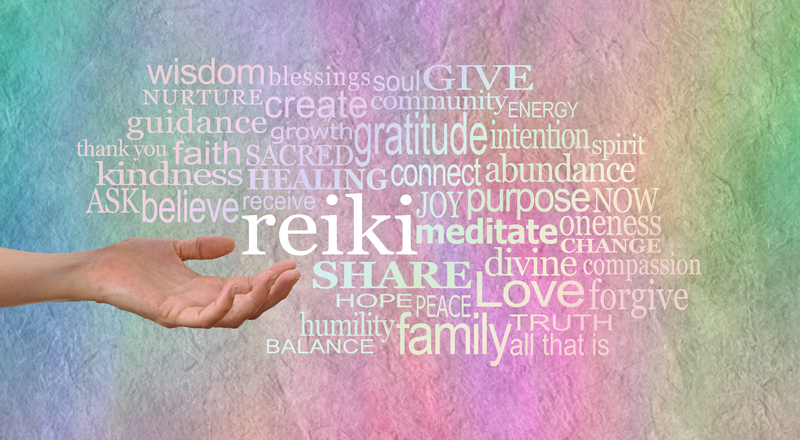Are you seeking a more mindful, conscious life?
Conscious Life is something we all need to pay attention to, learn about, think about, and put into practice in our lives. Why? Because we are creating our lives in every moment. The life you are experiencing today is the life you thought into existence yesterday – and last week – and last year.
Because of the way the 3rd dimension was designed, it appears that life happens sequentially – one thing after another. It would seem that life goes in a straight line and your past is always behind you, and your future always ahead. Even though it would seem so, and feel so, and appear to be so, it is not. Perhaps that is one of the biggest challenges of 3d life – to understand that linear thinking is a construct. It was created as a teaching tool so you could look at your life as though you were reading a book.
At the core, everything is a spiral. All energy spirals out and comes back to source.
Picture yourself on a circular track and think about this: you are always walking into the energy you left behind.
We all have days where we feel like we’re running through life on autopilot – whether it be our daily routines or the same-old job feeling increasingly monotonous. If that sounds familiar, then this post is for you:
Here are 5 tips to effect positive change and start living a more intentional and rewarding life. Follow these small but powerful changes in your perspective to find joy in each moment of life and begin doing what you truly love!
The story and resurgence of mindfulness
Mindfulness has been gaining a lot of attention in recent years. It is a way of paying attention to the present moment, with an attitude of kindness and curiosity. It can help people be more aware of their thoughts, feelings, and physical sensations. By becoming more aware, it can help people to respond rather than reacting impulsively. People can practice mindfulness in many different ways such as meditation, yoga, or just taking a few moments throughout the day to be still and mindful.
There is growing evidence that mindfulness practices can reduce stress and anxiety while improving emotional regulation, cognitive functioning and overall wellbeing. Studies have found that mindfulness-based interventions are effective for decreasing symptoms associated with depression and other mental health issues. Mindfulness techniques are increasingly being incorporated into therapy settings in order to give clients better tools for coping with difficult emotions.
Mindfulness practices can also benefit physical health by improving heart rate variability, reducing inflammation levels, lowering blood pressure and strengthening the immune system. Studies have found that mindful meditation may even slow down the progression of Alzheimer’s disease.
In addition to its beneficial effects on physical and mental health, mindfulness has also been linked to greater happiness and life satisfaction. Mindfulness helps people become more aware of their own behavior and reactions so they can make conscious choices instead of being driven by automatic patterns of thought or emotion. This awareness can lead to improved relationships as well as allowing people to stay connected with themselves in a deeper way so they appreciate who they are without judgement or criticism.
Overall, the story of mindfulness is one of resurgence – bringing together centuries old wisdom with modern scientific research in order to improve lives all over the world. Whether you go on a retreat or simply take five minutes out of your day for meditation or breathing exercises, mindfulness offers something for everyone – if we just take the time to observe our own experience with kindness and curiosity.

Acknowledging Feeling of Autopilot and Sharing Tips to Live a More Mindful and Conscious Life
Living on autopilot may feel like an efficient way to get through life, but it is often more detrimental than helpful. Autopilot is defined as a mode of being in which individuals go through their lives on autopilot and become increasingly disconnected from the present moment. On autopilot, people tend to be less conscious of their choices and actions, leading to less meaningful experiences and a lack of fulfillment. In order to live a more mindful and conscious life, it is important to become aware of when you are going into the autopilot mode and take steps to bring yourself back into the present moment.
One way to combat feeling on autopilot can be by paying attention to your internal dialogue and noticing when your thoughts start drifting away from the present moment. When you begin to notice this happening, make an effort to shift your focus back into the present moment. This could involve focusing on your physical sensations such as the texture of what you’re touching or the sound around you or simply taking some deep breaths while bringing attention back into your body. Another way to stay mindful is by engaging in activities that require focus such as meditation or yoga practice, which can help you develop greater awareness of your thoughts and feelings in the present moment.
It can also be helpful to be mindful with everyday tasks such as making meals, eating, doing laundry, or running errands. Instead of rushing through these tasks without thinking about them too deeply, take time to savor each step involved in completing them. For example, if you’re doing laundry try appreciating the warmth of the water or noticing how different fabrics feel against each other. If you’re making dinner pay attention to all the ingredients that go into it – how they smell individually and together once they’re cooked – and pay attention while eating it too!
Finally, remember that living mindfully doesn’t have to mean being perfect all the time; it’s totally normal for our minds wander off sometimes! Just remember that whenever this happens there’s always an opportunity for growth by coming back into awareness about what’s going on within us at any given moment. By learning how to recognize when we are living on autopilot and taking steps towards re-connecting with ourselves in a mindful way we can truly appreciate our lives more fully!
Tip #1: Take Time for Self-Reflection and Identify What You Truly Want in Life
Often times we get wrapped up in the hustle and bustle of day to day life, that we forget to take time for self-reflection. It can be easy to get caught up in the noise and distractions of life, that we neglect to take some much needed time for ourselves to reflect on what it is we truly want out of our lives. Taking the time for self-reflection is an important practice as it can help us identify our true desires, values, and goals.
Beginning this process starts with taking a few moments each day to pause and reflect on your current circumstances. Take notice of how you feel in different situations throughout your day. Make note of any recurring thoughts or feelings that continuously arise so you can better understand them; this will allow you to gain clarity on what it is that really matters most to you.
Next ask yourself what it is that makes you feel fulfilled and happy; this could be anything from exploring opportunities related to career advancement or striving towards improving relationships with those around you. What activities bring joy into your life? Is there anything you have been wanting to do but haven’t yet taken the steps towards making it happen? These are all important questions worth considering during these moments of self-reflection.
Once these questions have been addressed, make sure you write down what it is that matters most so they can become tangible goals in your life. Get creative here – break down big picture dreams into achievable tasks so they are easier to manage and accomplish over time. This will help motivate you by providing a sense of direction as well as keeping track of your progress.
Taking the time for self-reflection isn’t always easy but it’s an essential step towards claiming ownership over our lives and achieving our desired outcomes. Investing in yourself through reflection leads us onto the path of fulfilling our truest desires – ones based from an intentional place within ourselves rather than the expectations placed upon us from outside influences or sources.
Tip #2: Challenge Yourself Intellectually – Learn Something New or Broaden Your Experience
Learning something new or broadening your experience can be a great way to challenge yourself intellectually. Taking on a new activity or skill can give you the motivation to achieve something and become more knowledgeable about an area of interest. This could mean taking a class, reading a book, learning how to play an instrument, or anything else that interests you. By doing so, you’ll be better equipped with the knowledge and skills needed to make well-educated decisions in life.
When you take on a new challenge, it’s important to stay focused and motivated. To do this, set achievable goals for yourself while remaining realistic. Don’t try to learn everything all at once; instead, break down tasks into manageable chunks that will help you keep moving forward and stay on track with your progress. Having a support system of family and friends who are encouraging can also help motivate you along the way as well as provide valuable feedback if needed.
It’s also very important to remember that it’s okay if things don’t go perfectly the first time around – everyone makes mistakes! Learning from these mistakes is key to growing intellectually and personally as an individual. Similarly, don’t feel discouraged if it takes longer than expected for you reach your goal – it’s all part of the process! Over time, with dedication and hard work, you’ll eventually reach your goal.
Overall, by challenging yourself intellectually with experiences or activities outside of your comfort zone, not only will you gain knowledge and expand your horizons but also develop skills that may prove useful in both personal and professional life further down the road.

Tip #3: Prioritize Your Wellbeing – Setting Boundaries, Taking Breaks, and Establishing Good Habits
When it comes to staying healthy and productive, it’s important to prioritize your wellbeing. This means setting boundaries, taking breaks, and establishing good habits. By doing so, you can make sure that you’re not overworking or overextending yourself, which can lead to burnout and other negative consequences.
Setting boundaries is an essential part of taking care of yourself. You need to be clear about what tasks are absolutely necessary and which ones can wait. Knowing when to say no is also important; if something won’t contribute much value to you or your goals, it may not be worth investing your time in.
Taking breaks is another key factor in self-care. It’s important to step away from work on a regular basis so that you can refresh and come back with a new perspective. Breaks provide an opportunity for mental and physical rejuvenation, allowing you to approach tasks with more clarity and energy than before.
Finally, establishing good habits is essential for keeping productivity levels high while avoiding burnout. Create a routine that works for you and stick to it as closely as possible; having consistency will help ensure that you’re making the most of your time without overworking yourself. Making time for exercise, sleep, hobbies, nutrition, and socializing will keep both your mind and body healthy, allowing you to stay focused on what’s most important.
By setting boundaries, taking regular breaks, and developing healthy habits, you can ensure that you’re taking care of yourself while still keeping up with work commitments. Prioritizing your wellbeing isn’t just beneficial in the short term; it sets the stage for success in the long run as well!
Tip #4: Connect with Others – Pursue Meaningful Relationships & Seek Supportive Communities
Having meaningful relationships and being part of supportive communities are essential for our mental and emotional wellbeing. When we take the time to create relationships and become a part of a supportive community, we can benefit from the positive energy that those around us generate. Connecting with others helps us to feel supported, understood, and appreciated – all of which are vital for maintaining good mental health.
Having strong interpersonal relationships can help us cope with difficulties and support us through tough times. We can look to our friends, family, or even people we’ve just met for encouragement or advice when life throws us a curveball. Connecting with others is also an opportunity to share positive experiences and memories with people that matter to us.
By being part of a supportive community, we can learn from each other’s stories and learn how to better manage stress and difficult emotions. Joining groups where you feel accepted and connected – like a local running club or volunteer organization – can also be incredibly fulfilling. Through engaging in activities together and sharing experiences, you will form strong bonds with the members of your chosen community that will last far beyond any specific event or activity.
Connecting with others is key to mental wellbeing; it allows us to share our burdens while building invaluable support networks that will help keep our spirits high no matter what life throws at us.
Tip #5: Accomplish Goals and Celebrate Achievements – Set Challenging Yet Achievable Goals & Make Progress Towards Them
Achieving goals and celebrating successes is an important part of any successful endeavor. When setting goals, it’s important to make sure they’re challenging yet achievable – not too difficult to be impossible, but still requiring some effort to reach. Setting realistic objectives will help keep you motivated and focused on the end result.
Once you have your goals in mind, it’s time to start making progress. Break down larger tasks into smaller, manageable steps and keep track of your progress as you go. This can help ensure that you stay on track for reaching your end goal. Celebrating your successes along the way can also help maintain your motivation and reinforce the idea that hard work pays off. Whether it’s a small milestone or a major achievement, take a moment to appreciate how far you’ve come and congratulate yourself on a job well done!
Commit to Living with Mindfulness & Reap the Rewards of Doing What You Love
Living with mindfulness means taking the time to pause and be present in the moment. It requires us to be aware of our thoughts, feelings, and actions and how they affect us and those around us. Mindfulness helps us make conscious decisions about what we do, say, and think. By living with mindfulness, we become more aware of our environment, our reactions, and the impact of our decisions.
Mindfulness can help us better manage stressful situations by recognizing how we feel during these times. We can begin to reflect on why we are feeling this way and start exploring ways to reduce stress or develop healthier coping strategies. This will allow us to take better care of ourselves while also developing a greater understanding of what is truly important in life.
Mindful living also includes becoming more accepting of ourselves and others. It allows us to understand that mistakes are part of being human and that it’s okay to make them as long as we learn from them. We can recognize the strengths within ourselves as well as the strengths within others without judgement or comparison. This helps foster a more compassionate attitude towards oneself and others which leads to increased self-confidence in all areas of life.
Lastly, mindful living encourages us to explore different activities that bring joy into our lives such as hobbies or interests that have been forgotten due to busy schedules or lack of motivation. Doing things we love gives us a sense of purpose and fulfillment that is often hard to find in other areas of life. By investing time in these activities, we can restore balance, creativity, and contentment into our lives which leaves us feeling much more fulfilled than when only focusing on obligations or deadlines set by outside forces.
Living with mindfulness is an essential part of creating a meaningful life filled with joy, satisfaction,and contentment that comes from spending time doing what you love most!
Stepping out of autopilot mode can be hard in this day and age, but what is harder is reaping the rewards when we have no idea what we truly want from our lives. These 5 tips give us the necessary tools to begin to live with mindfulness, where we challenge ourselves intellectually, prioritize wellbeing, make meaningful connections with others, set challenging goals and celebrate achievements along the way.
If you embrace these practices while staying true to yourself and your values, a life of mindful living will become second nature. It won’t require effort to stop and smell the roses; instead it will feel effortless as you do what you love every single day.
What did you leave behind today? What energy did you leave in your home when you left for work or school? What energy did you leave on the roadway as you journeyed. What energy did you leave in the store when you stopped for those few things? What energy did you leave with that person you talked to on the phone?
What energy do you leave behind with every move you make? It is important to know, because that is the energy you are always walking into and experiencing on your circular energetic pathway through your life.
God is His wisdom and wonder and glory and magnificence created it to be this way. It is just and it is fair. We ALWAYS have to walk in the energy we left behind. We ONLY have to walk in the energy WE left behind.
Consider that if you will – it’s pretty important towards living a Conscious Life.






